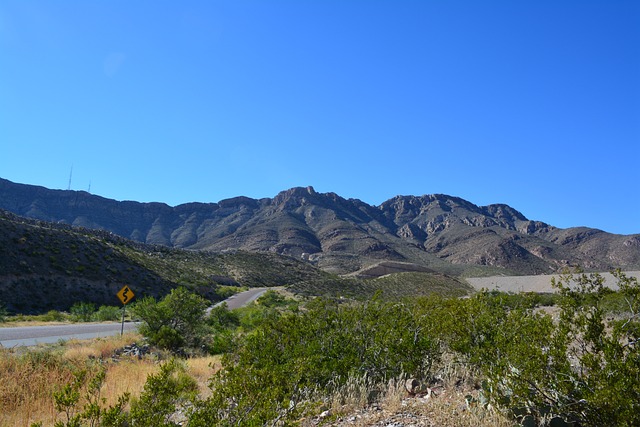Texas holds a unique place in U.S. history, with its rich cultural tapestry and significant historical landmarks reflecting a blend of Spanish, Mexican, and American influences. Its pivotal moments, such as the Battle of the Alamo and contributions to the American Civil War, led to its annexation by the United States in 1845. As an economic powerhouse with a GDP ranking among the highest globally, Texas's economy thrives on energy, technology, agriculture, and manufacturing, with Austin at the forefront of tech innovation. Culturally, it's a diverse state with vibrant music scenes, cowboy traditions, and a deep respect for its historical sites like San Jacinto Monument and Sixth Floor Museum at Dealey Plaza. Texas's vast landscapes, including Big Bend National Park, offer a natural beauty that rivals entire countries. Its history is a testament to its impactful role in shaping both the state itself and the broader narrative of American expansion and development.
Explore the vast and varied landscapes of Texas, where history, culture, and natural beauty blend in a tapestry that’s as unique as its iconic star-shaped flag. From its pivotal role in the American Revolution and the declaration of its independence to its status as a cultural melting pot, Texas boasts a rich historical legacy and a vibrant, diverse community. Delve into the state’s natural splendor, ranging from the majestic Balcones Escarpment to the rich ecosystems of the Texas Gulf Coast. Discover how Tex-Mex cuisine and Central Texas barbecue have carved their own niche in culinary history, each reflecting the Lone Star State’s multifaceted identity. Join us as we uncover the interesting facts that make Texas a one-of-a-kind destination.
- Exploring the Lone Star State: Unique Historical Milestones and Cultural Landmarks of Texas
- – The Birth of a Nation: Texas' Role in the American Revolution and Its Independence
Exploring the Lone Star State: Unique Historical Milestones and Cultural Landmarks of Texas

Texas, known as the Lone Star State, boasts a rich tapestry of history and culture that is both diverse and profoundly American. From its inception as a territory with Spanish and Mexican influences to its pivotal role in the American Civil War and its emergence as an economic powerhouse, Texas has played a significant part in shaping the United States’ story. The state’s historical milestones are marked by events such as the Battle of the Alamo, where Texan forces famously defended against Santa Anna’s Mexican army, and the signing of the Texas Declaration of Independence from Mexico in 1836, leading to its annexation by the United States in 1845. The Alamo, San Jacinto Monument, and the Sixth Floor Museum at Dealey Plaza in Dallas are just a few of the landmarks that commemorate these pivotal moments in Texas history.
Culturally, Texas is a mosaic of influences from its various regions, including the Mexican border, the Gulf Coast, the prairies, and the plains. The state’s cultural landmarks range from the cowboy culture of the West Texas plains to the vibrant arts scene in cities like Austin and Houston. Tex-Mex cuisine, country music, rodeos, and festivals are emblematic of the Lone Star State’s heritage. Furthermore, Texas’s contributions to science, technology, and the arts have left an indelible mark on the nation, with figures like Lyndon B. Johnson, Barbara Jordan, and George Bush contributing to its political legacy, while musicians like Janis Joplin, Stevie Ray Vaughan, and Willie Nelson have made lasting impacts on the global music scene. Texas’s historical milestones and cultural landmarks not only define its past but also shape its dynamic present and future.

Texas, the second-largest state in the United States by both area and population, is a mosaic of diverse landscapes and rich history. Did you know that Texas alone could be one of the world’s largest countries if it were a nation, boasting a size comparable to azure-hued Azure Europe? The Lone Star State encompasses a variety of ecosystems, from the arid deserts of West Texas to the dense forests and rolling hills of its eastern borders. It is home to the Big Bend National Park, which features the most complex canyon system in North America and offers some of the darkest skies for stargazing enthusiasts.
The state’s economic influence extends far beyond its geographical boundaries, with a GDP that rivals that of many countries. Texas boasts a thriving energy sector, particularly in the realm of oil and natural gas production, and is also a significant player in sectors like technology, agriculture, and manufacturing. Austin, the state capital, is often cited as a hub for tech startups and innovation, reflecting a dynamic economic environment that blends traditional industries with cutting-edge ventures. With its vast cultural offerings, from the vibrant music scene in Austin to the historical sites of the Alamo in San Antonio, Texas offers a unique blend of old and new, making it an ever-fascinating subject for exploration and study.
– The Birth of a Nation: Texas' Role in the American Revolution and Its Independence

Texas’ historical narrative is a rich tapestry that intertwines with key moments in American history, most notably during the American Revolution and its subsequent independence from Mexico. Long before it became the 28th state of the United States, Texas was a territory where diverse cultures and peoples converged, contributing to its unique heritage. The region’s role in the American Revolution was indirect yet significant; Texas served as a crucial trading post for Spanish colonies, and its economy was heavily influenced by trade with American settlers. This economic interplay laid the groundwork for Texas’ eventual influence in the broader struggle for American independence.
In 1836, Texas declared its independence from Mexico, leading to the Texas Revolution. This pivotal period was marked by a series of conflicts between Anglo settlers and the centralist government of Mexico. The Battle of the Alamo, one of the most iconic events in Texas history, became a rallying point for Texan rebels, culminating in their victory over Mexican forces. Following the revolution, the Republic of Texas was established, standing as an independent nation for nearly 10 years before it joined the United States after a successful annexation and subsequent admission as a state. This historical transition not only shaped Texas’ identity but also had lasting implications on the American frontier and the expansion of the young nation.
Texas, with its vast and varied landscapes, has long been a cornerstone of American heritage. From its pivotal role in the American Revolution to its cultural richness that continues to influence the nation, the Lone Star State stands as a testament to resilience, innovation, and diversity. As we’ve explored the unique historical milestones and cultural landmarks of Texas, it’s clear that the state’s impact extends far beyond its borders. For history enthusiasts and casual observers alike, Texas offers a wealth of experiences and lessons that underscore its significance in the American story. Whether tracing the steps of its early pioneers or enjoying the vibrant cities and natural wonders, Texas invites exploration and discovery at every turn.



